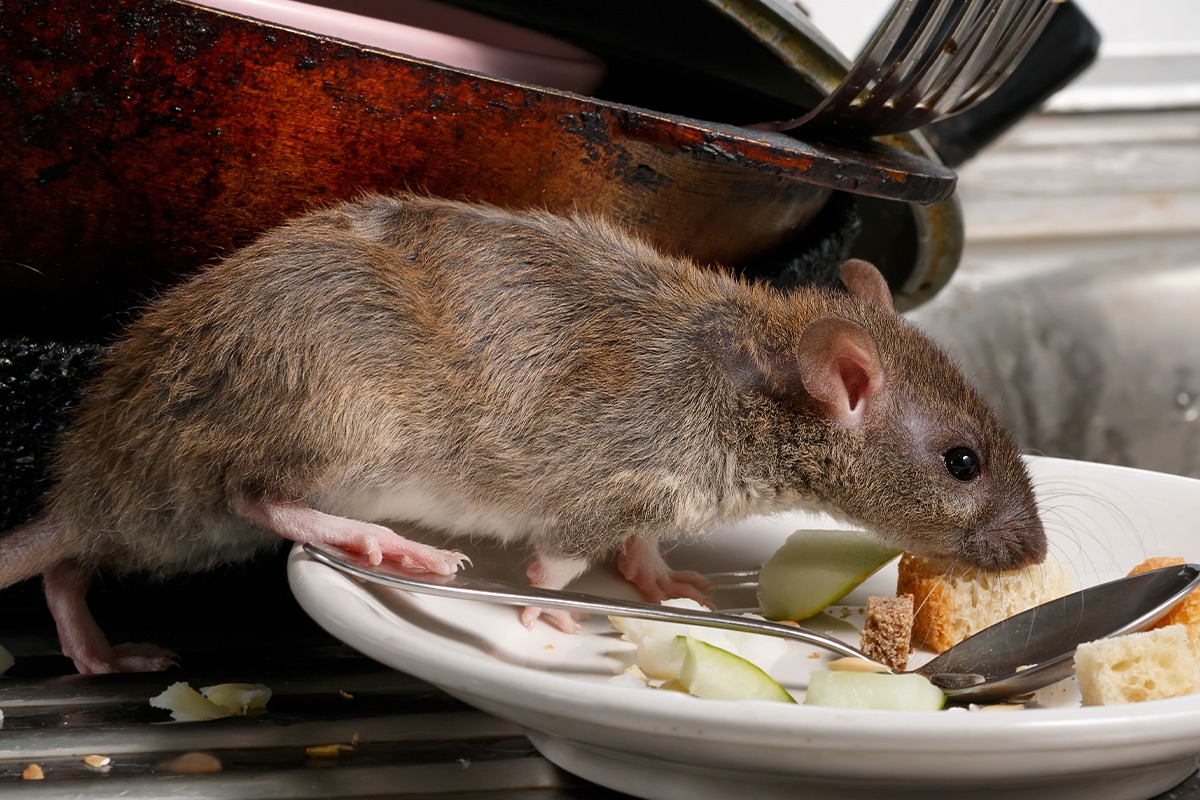If you own a home or business in North Carolina or South Carolina, then you don’t need to be told what wonderful places the Carolinas can be. A thriving job scene, beautiful outdoor areas, and plenty of warm weather make them incredible places to live and work.
However, happy humans aren’t the only ones who cheerfully flock to the Carolinas and the surrounding areas. Pests like mice are also abundant there, and they can easily find their way into your North or South Carolina home or business.
Clark’s Pest Control is proud to be the Carolinas’ go-to rodent solution thanks to innovative control approaches like Anticimex SMART Rodent Control. Here’s a closer look at what sets Clark’s apart from the rest of the pack, as well as some additional information every Carolina property owner should know about how to get rid of mice.
What Types of Mice Live in the Carolinas?

Although house mice live throughout the United States, they are by far the most common species found throughout North Carolina and South Carolina. You can identify a house mouse by looking for its trademark triangular snout, large ears, and coloring – light brown with cream-colored bellies.
Other species Carolina property owners may eventually encounter include deer mice, white-footed mice, and field mice. Some types (like field mice) are more likely to infest rural properties, while others are more common in urban or suburban areas.
Why It’s Important to Get Rid of Mice
Although mice can be very small and may look harmless, you don’t want to simply allow them to live in your home. To begin with, many mice carry dangerous pathogens in their saliva, feces, and urine that can make you and your loved ones incredibly sick.
Diseases Carolina mice can spread include (but aren’t limited to):
- Hantavirus
- Salmonella
- Leptospirosis
- Tularemia
- Lymphocytic choriomeningitis
Some modern-day rodents even spread diseases you may assume don’t exist anymore, like typhus and the plague.
Mouse infestations can also lead to serious property damage. Their teeth grow continuously throughout their lives, making it necessary for them to constantly find things to chew on, including your walls, foundation, insulation, and electrical wiring. They’ve even been known to destroy personal items like books, clothing, or furniture.
Mice don’t have to be inside your home or business to do damage, either. They can also damage vehicles, as well as many of the plants and trees growing in your carefully tended Carolina garden.
And keep in mind how quickly mice can reproduce. Each female mouse can produce up to ten litters a year with up to 14 baby mice per litter. She’s also immediately ready to mate again, making it possible for her to produce yet another litter in just 25 days.
Imagine how quickly even one or two mice could lead to a serious infestation that has you in way over your head.
How to Tell Whether You Have Mice
Spotting a mouse problem isn’t always easy, especially in the initial stages. However, there are still telltale signs a Carolina property owner should be on the lookout for. Here are some key examples:
- Scuttling noises: Many property owners hear mice on the premises long before they ever see them, especially toward the beginning of an infestation. Listen for scratching, scuffling, or scuttling noises, especially at night or inside your walls.
- Droppings: Mouse droppings look like tiny black or brown pellets most likely to be seen in areas where mice have been feeding or drinking. You may even spot them inside open food packaging if a mouse has found its way inside at any point.
- Bite markings: Food, packaging, and other items around the house that look like they’ve been chewed or nibbled at are sure signs you may have mice.
- Pet behavior: If your dog or cat can’t seem to stop sniffing at specific corners, cracks, or areas of the house, it’s a good idea to check for other signs mice could be around. Pets often know what’s up long before their owners do.
If you notice these or other signs that leave you wondering whether you need a mouse exterminator, it’s better to be safe than sorry. Don’t wait and give the mice time to reproduce and make the problem worse. Get in touch with a Clark’s Pest Control rep immediately to discuss your options.
How Clark’s Pest Handles Mice Control
Once you’ve made Clark’s Pest aware of your potential mouse situation, we’ll schedule a thorough inspection of your property. This will give us a better idea of what type of mouse you’re dealing with and what the best course of action would be.
Potential options for getting the infestation under control include classic approaches like trapping or baiting. We also apply a variety of safe, environmentally responsible techniques for additional ongoing protection, including strategic placement of bait stations around the exterior of your home.
We offer our Anticimex SMART Mice Control System, as well – a powerful wireless rodent monitoring system capable of tracking rodent activity and preventing mouse infestations before they start. Features include a 3G communication system, infrared and heat motion sensors, a powerful SMART eye, and more!
Carolina Mice Control FAQs
Still have questions about identifying, controlling, and understanding mice in the Carolinas? Here are a few frequently asked questions to consider:
Walk the perimeter of your house frequently to check for cracks, broken vents, and other places mice could enter. Mice are very small and can enter a property through a hole as small as a dime.
Mice are most attracted to homes where there’s plenty to eat and lots of different spots where they can hide undetected. Keep your home clean and clutter-free, taking care to vacuum and mop regularly. And be sure to keep food in sealed containers mice can’t access.
It’s highly unlikely that you truly only have one mouse on your property. There are almost certainly many others that you haven’t seen yet, so it’s best to call in a mouse exterminator right away.
At Clark’s, the safety of our clients and the beautiful environment throughout the Carolinas is our top priority. For that reason, we use a variety of eco-friendly mouse control solutions including SMART.
Yes, at Clark’s Pest, we take care of many different types of pests in addition to rodents like mice. Examples include termites, mosquitoes, roaches, ants, and more.
GET A FAST FREE ESTIMATE

